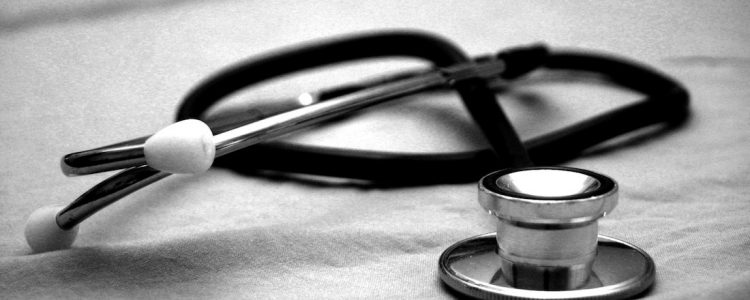What is Coronavirus?
On 31 December 2019, public health authorities were alerted to several cases of pneumonia in Wuhan City, Hubei Province of China. This was confirmed to be the novel coronavirus. Novel coronavirus is a respiratory illness from the same family of viruses as SARS (Severe Acute Respiratory Syndrome). The Wuhan coronavirus is a new strain of coronavirus that had not previously been identified in humans.
On the 30th of January, the Director-General of the WHO declared that the outbreak of 2019-nCoV novel coronavirus constitutes a Public Health Emergency of International Concern. This gives authorities such as the WHO greater powers to direct the response. The WHO has now named the disease COVID-19, short for cornavirus disease 2019.
Who has been affected by the novel Coronavirus COVID-19?
As of 16th March 2020, 165, 511 (80,239 on the 25th February 2020) cases of novel coronavirus have been confirmed globally. 86, 434 cases have been confirmed outside of China. These cases have affected 150 countries so far; Albania, Algeria, Antigua and Barbuda, Argentina, Australia, Austria, Belgium, Bolivia (Plurinational, State of), Brazil, Brunei Darussalam, Bulgaria, Burkina Faso, Cambodia, Cameroon, Canada, Cayman Islands, Central African, Republic, Chile, China, Colombia, Congo, Costa Rica, Cote d’Ivoire, Croatia, Cuba, Curaçao, Czechia, Democratic Republic, of the Congo, Denmark, Dominican Republic, Ecuador, Equatorial Guinea, Estonia, Eswatini, Ethiopia, Finland, France, French Guiana, French Polynesia, Gabon, Germany, Ghana, Greece, Guadeloupe, Guatemala, Guinea, Guyana, Honduras, Hungary, Iceland, International, conveyance, (Diamond Princess), Ireland, Israel, Italy, Jamaica, Japan, Kenya, Malaysia, Martinique, Mauritania, Mayotte, Mexico, Mongolia, Namibia, Netherlands, New Zealand, Nigeria, Norway, occupied Palestinian territory, Panama, Paraguay, Peru, Philippines, Poland, Portugal, Puerto Rico, Republic of Korea, Réunion, Romania, Russian Federation, Rwanda, Saint Barthelemy, Saint Lucia, Saint Martin, Saint Vincent and the, Grenadines, San Marino, Senegal, Serbia, Seychelles, Singapore, Slovakia, Slovenia, South Africa, Spain, Suriname, Sweden, Switzerland, The United Kingdom, Togo, Trinidad and Tobago, United States of, America, Uruguay, Venezuela (Bolivarian, Republic of) and Viet Nam.
As of 9am on 16 March 2020, 44,105 people have been tested in the UK, of which 42,562 were confirmed negative and 1,543 were confirmed as positive.. 55 patients who tested positive for COVID-19 have died.
We at Nomad encourage our patients and partners to rely on information that is provided by public health authorities. Public Health England provides realtime updates from the UK Government here. WHO offers up to date global information on confirmed coronavirus cases, your potential risk of infection and any updates on how to protect yourself.
We can discuss your risk for any trip during a travel health consultation, book online or call 01341 555061 for expert guidance.
Symptoms of the Novel Coronavirus COVID-19
Symptoms of the novel coronavirus are similar to other respiratory diseases, including flu and the common cold. The currently observed symptoms of the novel coronavirus include:
- fever
- cough
- feeling tired
- difficulty breathing or shortness of breath
Coronavirus Prevention Tips
- Avoid close contact with people displaying flu like symptoms
- If you have any symptoms of acute respiratory infection such as fever, cough, runny nose, sore throat or difficulty breathing), practice cough etiquette (maintain distance, cover coughs and sneezes with disposable tissues or clothing, and wash hands)
- Keep sanitary conditions to as high a standard as possible
- Wash hands properly and regularly, (Wash your hands more often than usual, for 20 seconds using soap and hot water, particularly after coughing, sneezing and blowing your nose, or after being in public areas where other people are doing so)
- Use hand sanitiser regularly
- Do not rely on surgical masks to reduce transmission, they are not effective
- Avoid crowded places and public transport if unwell
What to do if you show symptoms of Coronavirus
If you are unwell with potential symptoms of coronavirus, and have travelled internationally, it is incredibly important that you follow current public health guidelines.
- If you live alone and you have symptoms of coronavirus illness (COVID-19), however mild, stay at home for 7 days from when your symptoms started
- If you live with others and you or one of them have symptoms of coronavirus, then all household members must stay at home and not leave the house for 14 days. The 14-day period starts from the day when the first person in the house became ill
- For anyone in the household who starts displaying symptoms, they need to stay at home for 7 days from when the symptoms appeared, regardless of what day they are on in the original 14 day isolation period
- If you feel you cannot cope with your symptoms at home, or your condition gets worse, or your symptoms do not get better after 7 days, then use the NHS 111 online coronavirus service. If you do not have internet access, call NHS 111. For a medical emergency dial 999
- Read the UK government stay at home guidance
What should I do if I plan to travel to China or elsewhere?
Travel restrictions are changing all the time and it is important to stay up to date on the FCO foreign travel advice for your destinations to find out any restrictions. Read our more detailed guide to travel during the covid-19 outbreak for guidance on how to properly prepare for necessary travel during the pandemic.
Our expert Nurses can consult with you remotely via phone/video call on the coronavirus outbreak & how it will affect your travel plans. Be aware that wherever you travel there are vaccine preventable diseases such as flu. It’s important you are protected against these along with being aware of any outbreaks that may affect your trip. Book a consultation if you have any concerns about an upcoming trip or about living through the coronavirus outbreak.


No Comments
Be the first to start a conversation